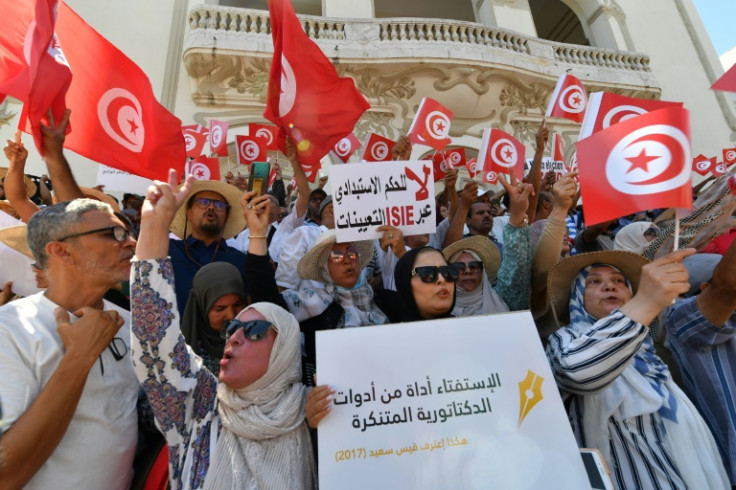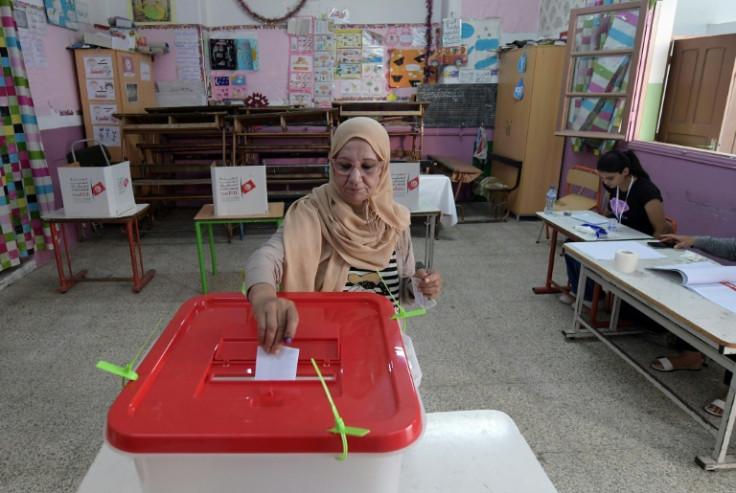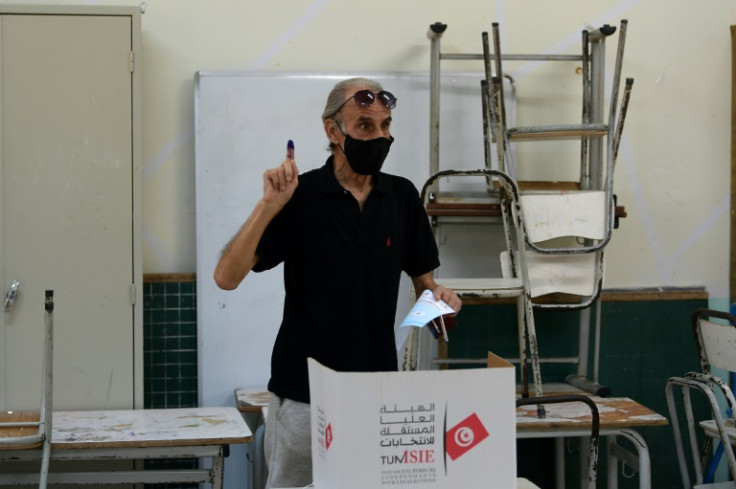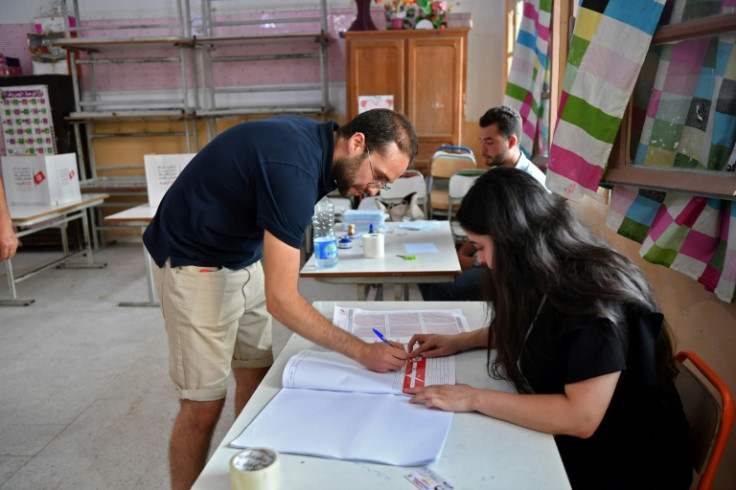Tunisians vote on constitution set to bolster one-man rule
Tunisians began voting Monday on a constitution seen as a referendum on President Kais Saied.

Tunisians began voting Monday on a constitution seen as a referendum on President Kais Saied, whose charter would give his office nearly unchecked powers in a break with the country's post-2011 democratic trend.
Voting began at 6:00 am (0500 GMT) at some 11,000 polling stations across the North African country, and was set to close at 10:00 pm.
At one polling station at a school in central Tunis, six voters waited outside as voting began, the entrance guarded by two soldiers with assault rifles, alongside a small group of police.
The referendum -- a brainchild of the president -- comes a year to the day after Saied sacked the government and froze parliament in a dramatic power grab, as Tunisia grappled with surging coronavirus cases on top of political and economic crises.

Some 9.3 million out of Tunisia's 12 million people -- civilians aged over 18 -- have opted in or been automatically registered to vote, according to the ISIE electoral commission.
They include around 356,000 registered overseas, for whom polling began on Saturday.
Many Tunisians welcomed the president's moves last year against political parties and the often-deadlocked parliament, part of a system long praised as the only democracy to have emerged from the 2011 Arab uprisings.
But after a year of one-man rule in which he has vastly extended his powers and made little progress on tackling deep economic woes, Saied's personal popularity will be under the spotlight.
"The biggest unknown in this referendum is the turnout and whether it will be low or very low," said analyst Youssef Cherif.
No quorum has been set, nor any provision made for a "no" result, and Saied's constitution for a "new republic" is widely expected to pass.
Saied's rivals, rights groups and international organisations have warned that he risks turning the country back into a dictatorship, more than a decade after the toppling of dictator Zine El Abidine Ben Ali that sparked pro-democracy uprisings across the region.
Opposition parties and civil society groups have called for a boycott, while the powerful UGTT trades union has not taken an official stand on the vote.
Saied's charter would replace the country's 2014 constitution, a hard-won compromise between Islamist-leaning and secular forces reached after three years of political turmoil.
His supporters blame the hybrid parliamentary-presidential system it introduced, and the dominant Islamist-influenced Ennahdha party, for years of political crises and widespread corruption.
Saied's draft for the constitution was published earlier this month with little reference even to an earlier draft produced by a committee he appointed himself.
The new text would place the head of state in supreme command of the army, give him full executive control and allow him to appoint a government without the approval of parliament.

He could also present draft laws to parliament, which would be obliged to give them priority.
He would be almost impossible to remove from office before the end of his five-year term in 2024.
Sadeq Belaid, the legal expert who led the drafting committee and was until recently an ally of the president, said Saied's version was "completely different" from that of the committee, and could install "a dictatorial regime".
The draft has been heavily promoted in state media, and billboards bearing the Tunisian flag have appeared exhorting people to vote "yes".
"People don't know what they're voting on, or why," Cherif said.
Saied, a 64-year-old law professor, won a landslide victory in 2019 presidential elections, building on his image as incorruptible and distanced from the political elite.
He has appeared increasingly isolated in recent months, limiting his public comments to official videos from his office -- often diatribes against domestic foes he brands as "snakes", "germs" and "traitors".
He has vowed to protect Tunisians' liberties and describes his political project as a "correction" and a return to the path of the revolution.
"Lots of young people, the marginalised and excluded, are on his side," said political analyst Hamadi Redissi.
That popularity will continue to be tested in the coming months as Tunisians face soaring inflation, youth unemployment of 40 percent and a looming deal with the International Monetary Fund that observers have warned could lead to more economic pain.
Cherif said that for now, "the fact that people can express themselves freely or go and vote 'no' without going to prison shows that we're not in a traditional dictatorship".
But, he added, "this constitution could create an authoritarian regime resembling the regimes Tunisia experienced before 2011."

© Copyright AFP 2025. All rights reserved.





















